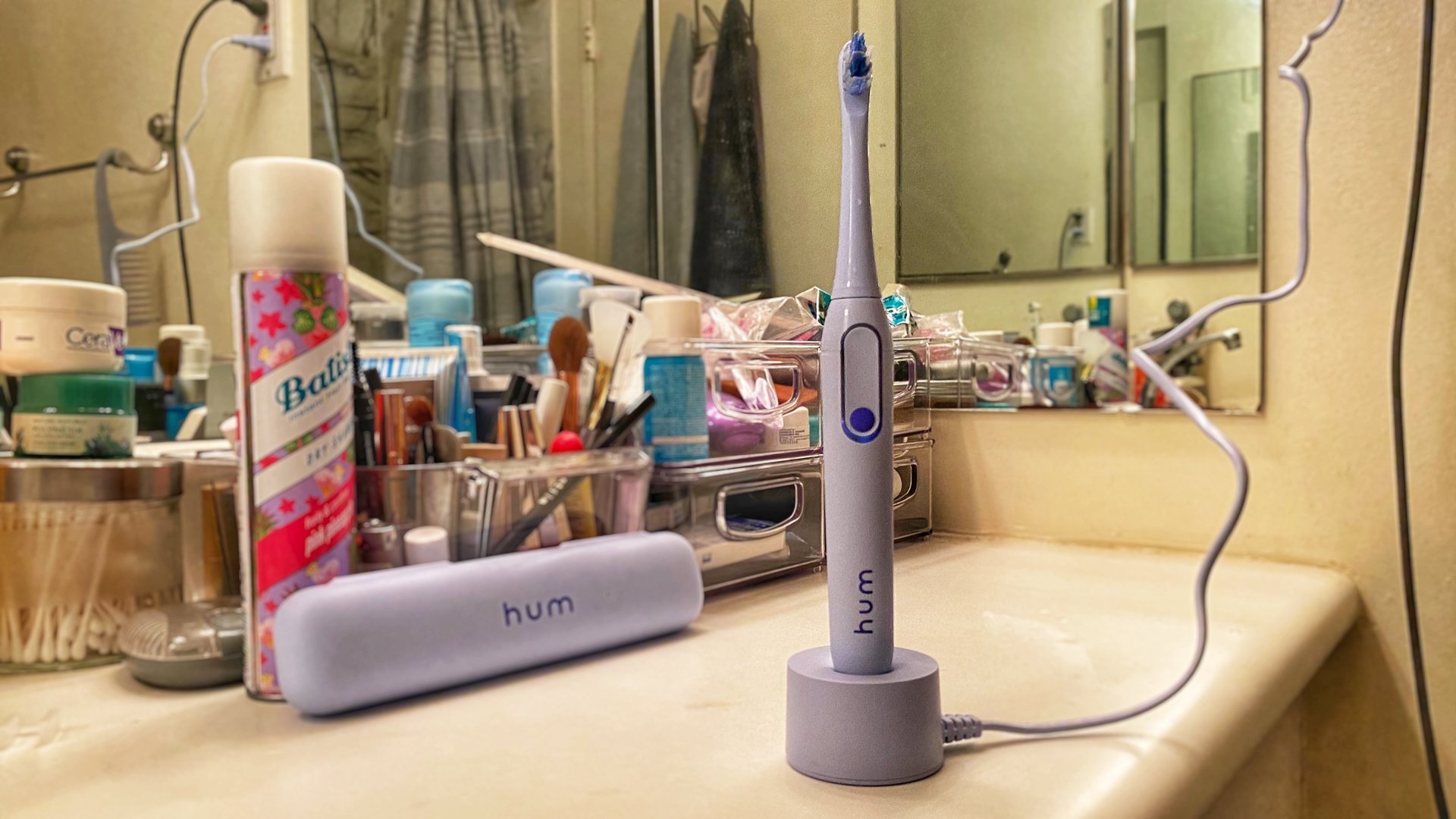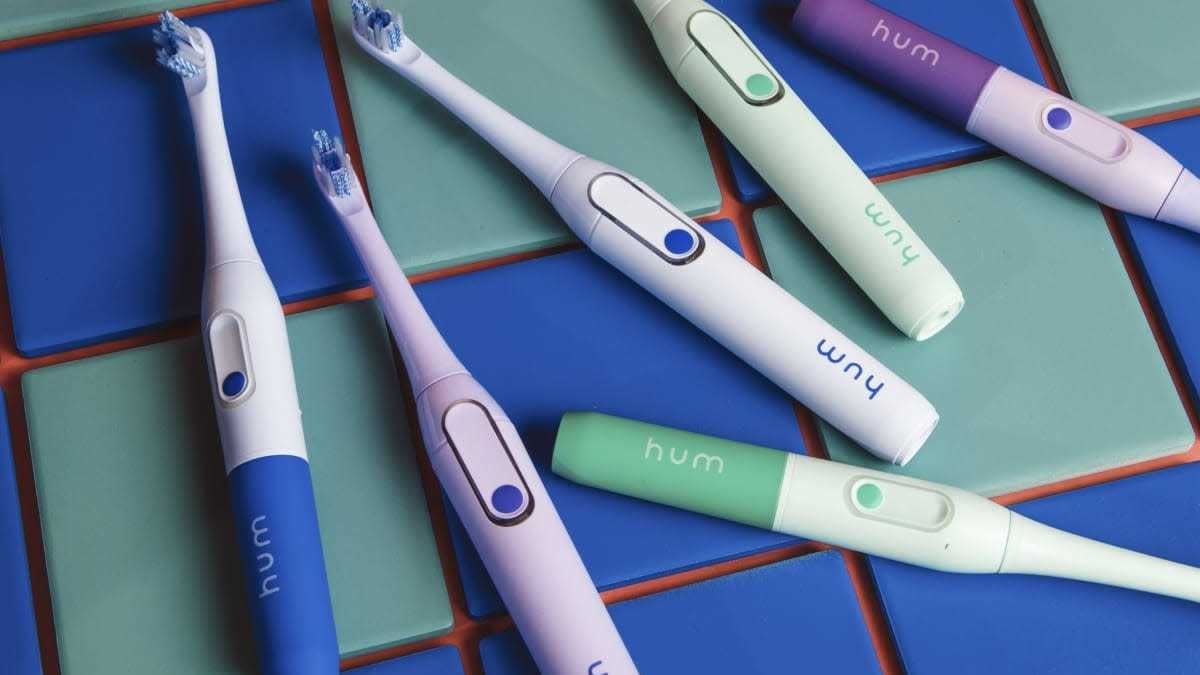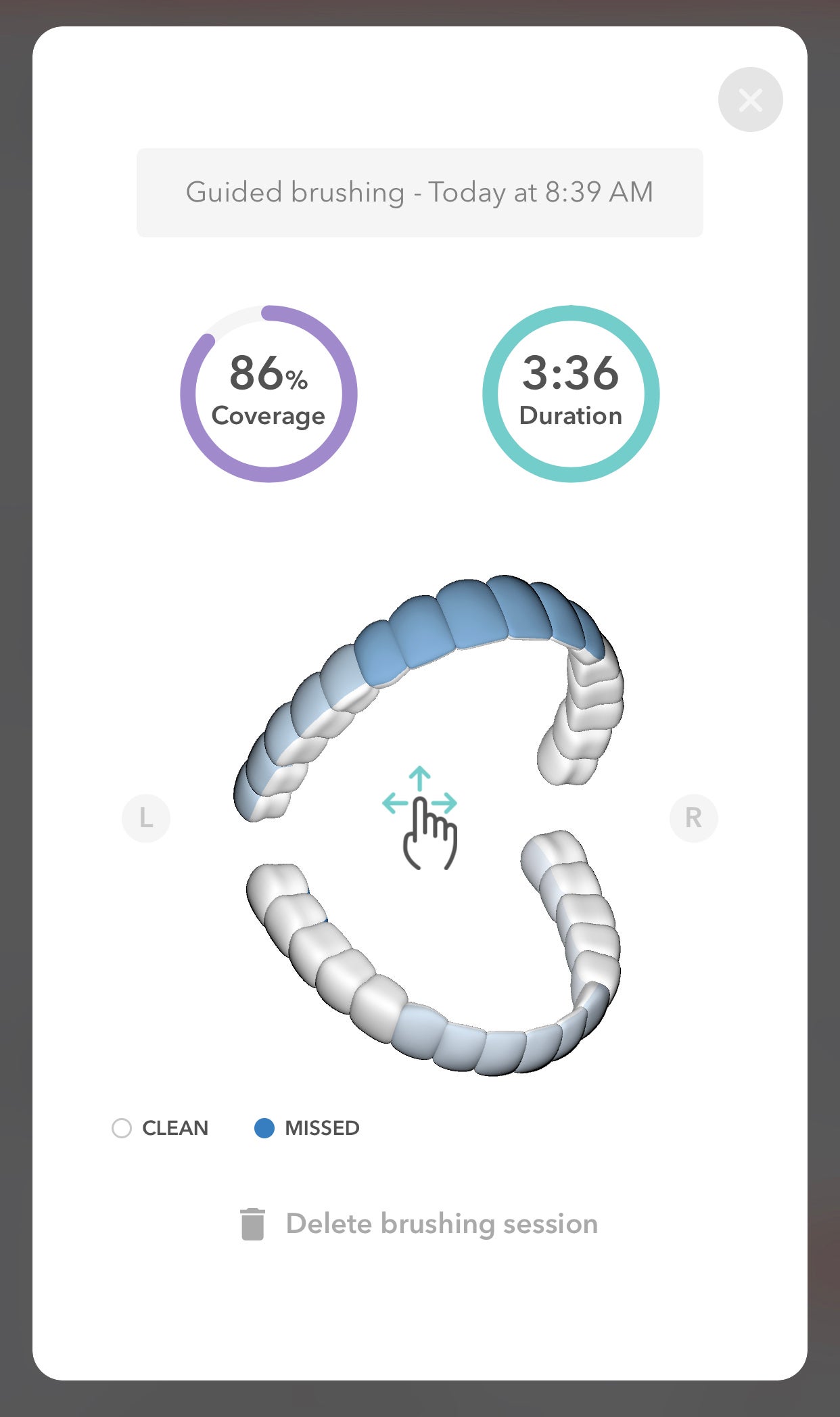Colgate's New Smart Toothbrush Gave Me the Strength to Practice Basic Dental Hygiene Again
Hum Smart Toothbrush (Rechargeable) | $70 | ColgateHum Smart Toothbrush (AAA Batteries) | $50 | Colgate

Hum Smart Toothbrush (Rechargeable) | $70 | Colgate
Suggested Reading
This morning I met with a colleague on Zoom, as one does in the midst of a pandemic. As soon as I joined the call, he apologized for “looking disheveled,” to which I responded by turning on my camera, revealing my unkempt facial hair and disobedient mane. Our new reality, as I’ve heard it called a nauseating amount, has its obvious setbacks. For one, basic hygiene takes a backseat to productivity and the extra sleep required to carry out the added workload. As such, I’ll confess, I don’t always make the time to brush my teeth twice a day, per the recommendation of the American Dental Association.
Related Content
That’s right, sometimes I go to bed with stinky breath and wake up smelling like the sweet chili Popcorners I’d stress-eaten the night prior. So when Colgate approached me asking if anyone from The Inventory wanted to sample their rechargeable Hum smart toothbrush, I ashamedly volunteered myself—and so far, the results have inspired confidence that I’ll soon reform my habit and once again brush my teeth every night and not just on the nights it’s convenient. It takes 66 days on average, according to this 2009 study conducted by the European Journal of Social Psychology, for a person to acclimate to a new routine. All goes well, in two months’ time, you may be looking at a brand new me. Or, in all likelihood, the same me, albeit with pearlier whites.
As a reformed gamer, it helps that the Colgate Hum gamifies the act of brushing your teeth by rewarding you with “Smile Points” in its accompanying mobile app after each session. Better still, those points can be exchanged for real-world currency, which you can apply to purchases including replacement heads and even a new Hum brush. In other words, brush your teeth every day and you’ll get yours ... sort of. Because you start out with 100 Smile Points off the bat, the Colgate’s toothbrush economy falls victim to inflation. Ignore the initial handout, and you might wrongly expect—as I did—to earn 100 smile points for every four brushes. Don’t hold your breath. Instead, every brush nets you just one Smile Point, equal to a penny in U.S. dollars. After 100 sessions, you’ll have a dollar, ad infinitum. Assuming you brush twice daily, it would take 500 days to earn $10, rendering Smile Points practically worthless unless you, uhh ...

Brush 25 Times a Day for Two Weeks Straight
Calling back to a time much simpler than this, I once had this M&M-branded daily checklist as a kid my mom bought to lure me into doing more chores. And it worked. At first. But when I found out the “checks” weren’t the real money kind of checks, I threw a tantrum and subsequently lost interest. This is exactly like that, except now I’m getting PAID. 😎 It’s a pittance considering the labor involved, but I’m admittedly having a blast doing it, because let me tell you, the Hum lives up to its name. Cuter than a button, it weighs little more than my older analog brush and comes in three pastel colorways: blue, teal, and purple. Now for the kicker—it “hums” in three adorable frequencies dubbed Normal, Sensitive, and Deep Clean. When pressed multiple times in succession, it almost sounds like a bee trying to sing a lil’ melody. And that brings me immense joy.

While the Colgate Hum’s Bluetooth-enabled guided brushing isn’t quite as advanced as the $220 Oral-B Genius my partner reviewed for Gizmodo last year, the rechargeable model is also three times less expensive, and the AAA battery-powered version is even cheaper. It can’t sense pressure, let alone accurately identify its own location in your mouth about a quarter of the time, but it gets the job done without further indebting you to Big Tooth. Back to Victoria’s Oral-B post, a different study she cited, coincidentally also from 2009, suggested the average American spends only 45 seconds brushing their teeth. However, in my guided brushing sessions, it takes over 3 minutes to reach 85% coverage. You can take that with a grain of salt, sure; the Colgate hum is sometimes woefully inaccurate, but it does incentivize a more thorough brush. And the logs it keeps are a good indicator as to how I can improve.
Should I Buy the Colgate Hum Smart Toothbrush?
No one needs a smart toothbrush. Hell, no one needs an electric toothbrush at all if you’re happy with the low-tech solution you’ve got. But for some of us, discipline and dental hygiene don’t always go hand in hand. Nor does forking over a couple Benjamins for a toothbrush of all things. For the ordinary person, not the chomper-obsessed, the $70 rechargeable Colgate Hum is a serviceable alternative to the prohibitively expensive Oral-B Genius and its competitor, the Philips Sonicare 6100. For $30-50 less than Colgate’s own E1 smart electric toothbrush, I take comfort in knowing there’s a cheaper option out there for people like me, who’d prefer not to spend over a hundred bucks for a proper brushing but still want a premium clean from a trusted brand like Colgate.
